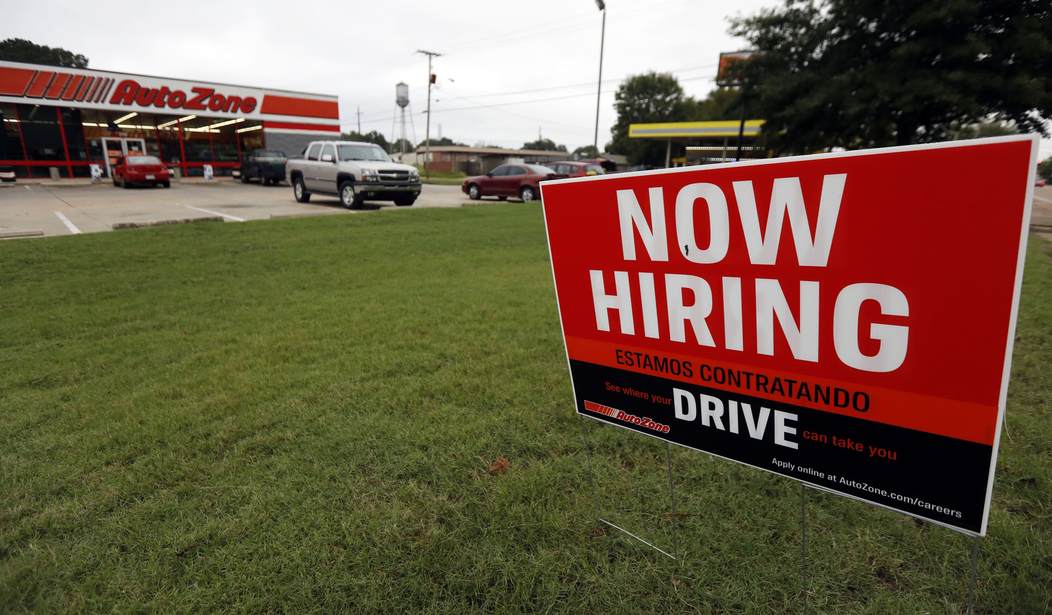COVID definitely changed America in many ways, at least temporarily. I was one of the foolish people who initially thought last spring that a pandemic would somehow bring a lot of people at least somewhat closer together while facing a common enemy. (By which I mean the virus.) But if anything, the nation is coming out of it even more divided than before. There were more than just social and societal changes taking place, however. As we move into the summer months, businesses are reopening, allowing people to go back to work. But the concept of “work” has changed over the course of the pandemic. We’ve already discussed here how many employers, particularly in the retail and foodservice industries, are having trouble luring people back to their old jobs, particularly the ones receiving federally enhanced unemployment benefits. But that’s not the only trend hampering these employers. As the Washington Post reports this week, even the people who did go back to work, especially at retail outlets, are quitting their jobs in record numbers.
Retail workers, drained from the pandemic and empowered by a strengthening job market, are leaving jobs like never before.
Americans are ditching their jobs by the millions, and retail is leading the way with the largest increase in resignations of any sector. Some 649,000 retail workers put in their notice in April, the industry’s largest one-month exodus since the Labor Department began tracking such data more than 20 years ago.
Some are finding less stressful positions at insurance agencies, marijuana dispensaries, banks and local governments, where their customer service skills are rewarded with higher wages and better benefits. Others are going back to school to learn new trades, or waiting until they are able to secure reliable child care.
This is one trend that I hadn’t previously heard about and am rather surprised to see. I can understand some people not returning to work if they are either making more money on unemployment or can’t find affordable childcare. I can even understand if some are still hesitant because they fear catching COVID. But anyone who evaluated the situation and returned to work would be inclined to return to “normal,” right? Or at least so I thought.
But the interviews that the WaPo conducted with some of the people who quit tell a different story. For many, the old “normal” wasn’t good enough and perhaps it took a pandemic to make them realize it. And yet at the same time, they left me with a lot of questions. Some of the workers left jobs in retail for positions in insurance agencies, marijuana dispensaries, banks, and local governments. That sort of makes sense because you can get entry-level positions in those fields (sometimes) with very little experience or college degrees.
But others were quite different. One worker described how she quit an $11-an-hour job at a national pet chain “to focus on writing and art.” I can speak from experience and tell you that getting a paying position as a writer isn’t an easy feat and the art world is even harder to break into and stay afloat. From that background, how did she manage it?
Another described how she quit a $10.25 an hour job at a dollar store and now works from home for an attorney’s office. I’m fairly sure she’s not an attorney (or why would she be working at a dollar store?) but even legal aides, transcribers and related positions have some fairly serious requirements in terms of both education and experience. How does one make that particular leap in their professional career?
The WaPo article frames all of these retail and foodservice positions paying the minimum wage (or anything less than $15 per hour, really) as being “not worth it” and “not liveable.” The question we should be left with is how all of these avenues of employment survived for so many generations if they were that untenable. They’re clearly not the best career paths in terms of building wealth, but they have worked out well for many people who invest the effort to get more education and experience while doing them, later moving on to more lucrative careers.
The other issue raised by this reported phenomenon is the question of what will happen to all of these retail and foodservice industries if everyone starts jumping ship in a similar fashion. Retail stores, bars, restaurants, and fast food outlets aren’t simply going to disappear. The easy answer is that the free market will handle the problem. If sufficient numbers of workers can’t be found at prevailing wages, those employers will simply have to increase wages and benefits to attract the help they need to keep going. That’s great for the people entering the workforce. But at the same time, those increased labor costs will have to be factored into the employers’ business models. And that means the prices of everything will be going up. That’s a sad bit of math that simply can’t be avoided.
The result winds up being a situation where more people are earning more money if they work in lower-skill jobs, but the costs they themselves pay just to get on with their lives go up as well. We’ll keep an eye on this “trend” to see if it’s really as prevalent as the Washington Post suggests, but something here really doesn’t seem to add up.








Join the conversation as a VIP Member